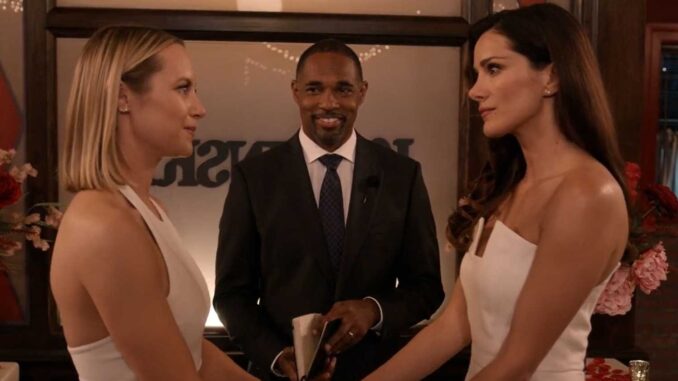
Blazing a New Trail: How Maya and Carina Redefined LGBTQ+ Representation in Station 19
In the world of television, where representation often falls into predictable tropes and limited narratives, ABC's "Station 19" dared to forge a different path with its portrayal of Maya Bishop and Carina DeLuca. More than just ticking a diversity box, the show crafted a nuanced and evolving love story between these two strong, independent women, ultimately redefining LGBTQ+ representation on primetime television. Their relationship, built on mutual respect, vulnerability, and a shared desire for a family, offered a refreshing contrast to the often-stereotyped depictions of queer relationships, paving the way for more authentic and meaningful stories within the genre.
One of the most significant ways Maya and Carina redefined representation was through their complex individual identities. Both characters were fully fleshed out individuals with compelling backstories that extended far beyond their sexual orientation. Maya, a fiercely competitive firefighter Captain, grappled with childhood trauma and a relentless need for validation. Her ambition and drive, while admirable, often masked deep-seated insecurities. Carina, an OB-GYN with a passionate spirit and a penchant for dispensing unsolicited advice, struggled with the loss of her brother and the cultural expectations tied to her Italian heritage. By establishing these rich and multifaceted personalities, "Station 19" avoided the common pitfall of reducing queer characters solely to their sexuality. Instead, it showcased the complexities of being a person who happens to be queer, allowing the audience to connect with them on a deeper, more human level.
Further, Maya and Carina's relationship was portrayed with a level of normalcy and intimacy rarely seen on mainstream television. Their journey, from flirtatious encounters at Joe's bar to navigating the challenges of a long-distance relationship, felt genuine and relatable. The show didn't shy away from showcasing the mundane aspects of their love, such as awkward morning coffees, shared household chores, and navigating disagreements. These small, everyday moments, often overlooked in favor of dramatic plot points, humanized their relationship and normalized the experience of queer love for a wider audience. The intimate scenes, handled with sensitivity and respect, underscored the depth of their connection, further solidifying their portrayal as a loving, committed couple.
Beyond the romantic aspects, "Station 19" also explored the challenges and triumphs faced by LGBTQ+ individuals in a nuanced and realistic way. While the show didn't shy away from addressing issues like homophobia and discrimination, it did so in a way that felt organic to the characters' experiences. Maya, for instance, had to navigate the predominantly male environment of the firehouse, often facing subtle biases and microaggressions. Carina, on the other hand, dealt with the cultural expectations of her Italian family, who initially struggled to understand and accept her relationship with Maya. By highlighting these challenges, the show shed light on the specific hurdles faced by LGBTQ+ individuals, while also emphasizing their resilience and strength in overcoming adversity.
Moreover, Maya and Carina's desire to start a family broke ground in LGBTQ+ representation. Their journey through IVF, the emotional rollercoaster of donor selection, and the anxieties of impending parenthood were portrayed with honesty and vulnerability. This storyline challenged the traditional notions of family and demonstrated that love and commitment, not biological ties or gender roles, are what truly define a family. It also offered a much-needed positive representation of LGBTQ+ parenthood, providing visibility and hope for countless viewers who dreamed of building their own families.
In conclusion, Maya and Carina's relationship in "Station 19" was more than just a love story; it was a testament to the power of authentic representation. By portraying them as complex individuals with their own strengths, flaws, and aspirations, the show broke free from stereotypical narratives and offered a refreshing perspective on queer love. Their journey, filled with both joy and hardship, resonated with audiences and paved the way for more nuanced and meaningful LGBTQ+ representation on television. They redefined what it means to see oneself reflected on screen, offering a beacon of hope and a powerful reminder that love, in all its forms, deserves to be celebrated. They blazed a new trail, leaving an enduring legacy that will undoubtedly inspire future generations of storytellers to embrace authenticity and tell stories that truly matter.
